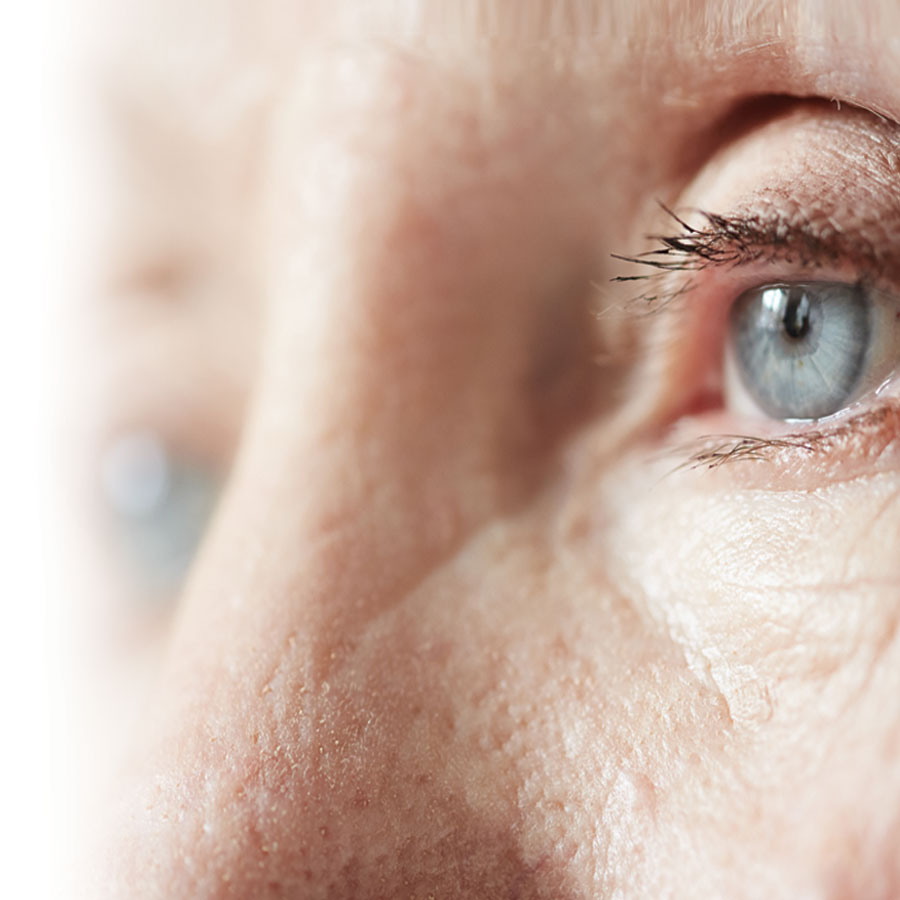The risk of vision loss increases with age. Here are a few tips to preserve your eye health.
The risk of developing certain eye diseases increases with age, such as age-related macular degeneration (AMD). Furthermore, vision loss also leads to loss of autonomy and quality of life. This is why, in terms of eye health, an ounce of prevention is worth a pound of cure!
What is age-related macular degeneration?
AMD is a condition that affects the retina, a portion of the eye that is essential to vision. This disease, which generally starts around the age of 50, becomes even more common after the age of 65. AMD is age-related and there are two types of it: dry or wet. When a person is affected by the wet type, vision loss can occur more quickly. It is possible for the dry type to change into the wet type.
What causes AMD?
The causes of this condition are currently unknown. However, we know that certain factors can increase the risk of being affected by it: smoking, high blood pressure, hypercholesterolemia, obesity and possibly, exposure to the sun’s rays (UV). Women and individuals with light-coloured eyes are also more likely to be affected by it. Certain genetic factors might also come into play.
What are the symptoms of the condition?
At the onset of the condition, the person affected by AMD will be symptom free. The condition is often detected during a routine eye exam. This is why it is important to be periodically monitored by an eye care professional. In the first stages, some patients will have the impression that the lighting isn’t as good as it was. As the condition progresses, the affected person will start to see a spot appear at the centre of their field of vision. They may also find it difficult to clearly distinguish contrasts, such as a face, a number or letters. It is really the centre of the vision that is disrupted. Peripheral vision (side vision) is not affected. Therefore, people with AMD do not become completely blind, as they keep their peripheral vision. However, they will be unable to drive or do certain activities, such as climb stairs.
Can AMD be prevented?
If you are over the age of 50 and you would like to maintain your eye health, here are some tips:
- Visit your eye specialist regularly for an eye exam.
- If your vision changes or you present unusual symptoms, or if your find it difficult to perform certain activities such as driving, reading or doing crafts or tinkering, see a medical professional promptly.
- Quit smoking. Smoking contributes to the development of several eye conditions and to dry eye.
- Eat healthy. Bright coloured fruits and vegetables are excellent for your eyes. Foods rich in vitamin C and E, beta carotene, zinc and lutein also contribute to eye health.
- Your eye care professional may recommend that you take vitamin supplements. If this is the case, take the one that is prescribed to you and be consistent.
Can AMD be treated?
Although there is no treatment for the dry condition, vitamin supplements may be recommended to slow down its progression. These are special vitamins that contain a specific amount of certain molecules. If you have AMD and your eye care professional has prescribed a supplement, take what has been prescribed to you. If in doubt, ask the advice of your pharmacist.
For those who have or who will develop the wet condition, there are treatments by injection. These are injected directly into the eye by an ophthalmologist. The frequency of injection may vary depending of the type of medication administered. Although it does not cure the condition, it helps to restore part of the vision that has been lost or at least to improve certain symptoms.
Speak to your pharmacist or eye care professional if you have any questions about AMD or its treatment. They will be able to provide you with information. Remember that regular monitoring by your eye care professional can help to detect AMD.

